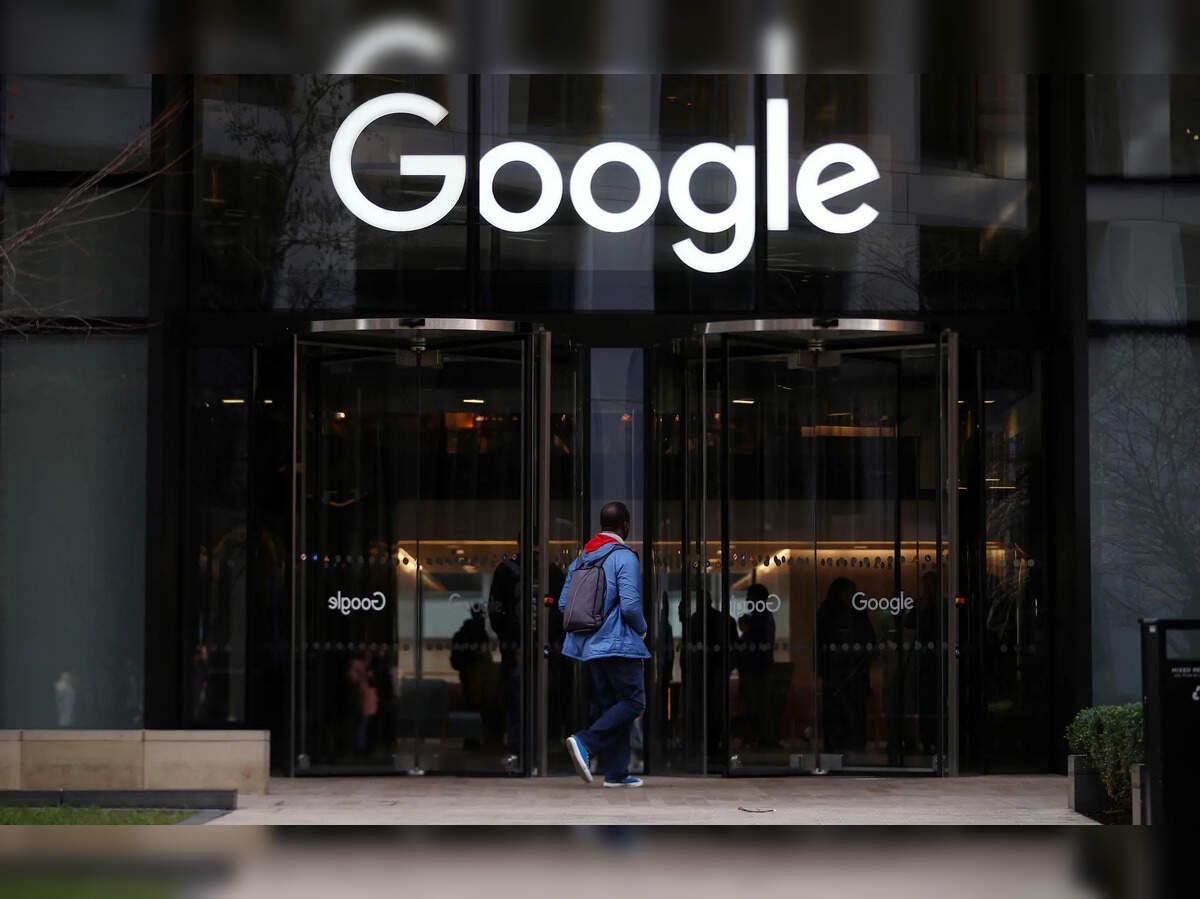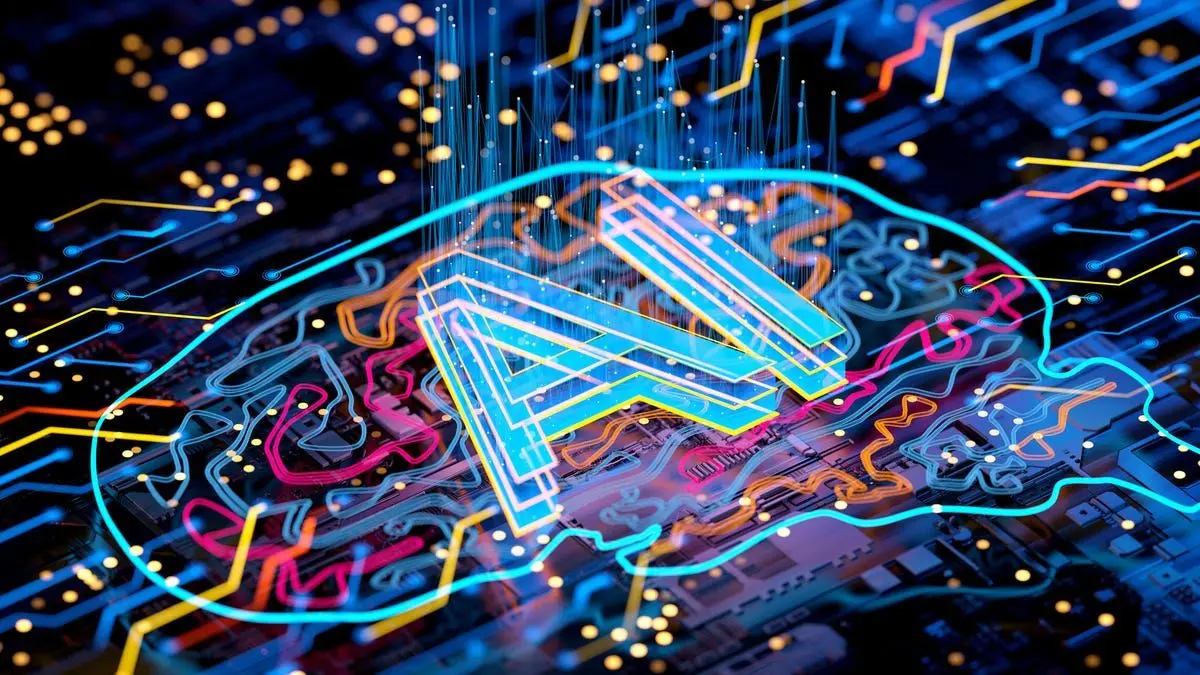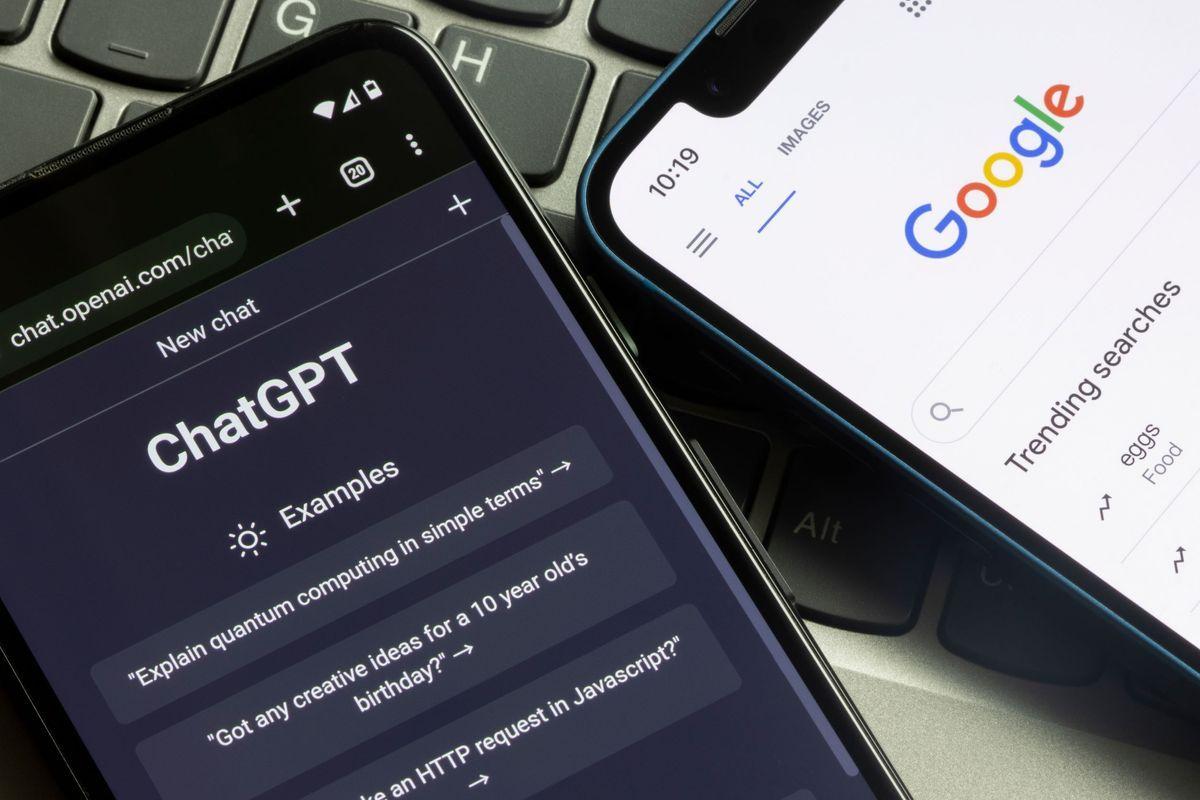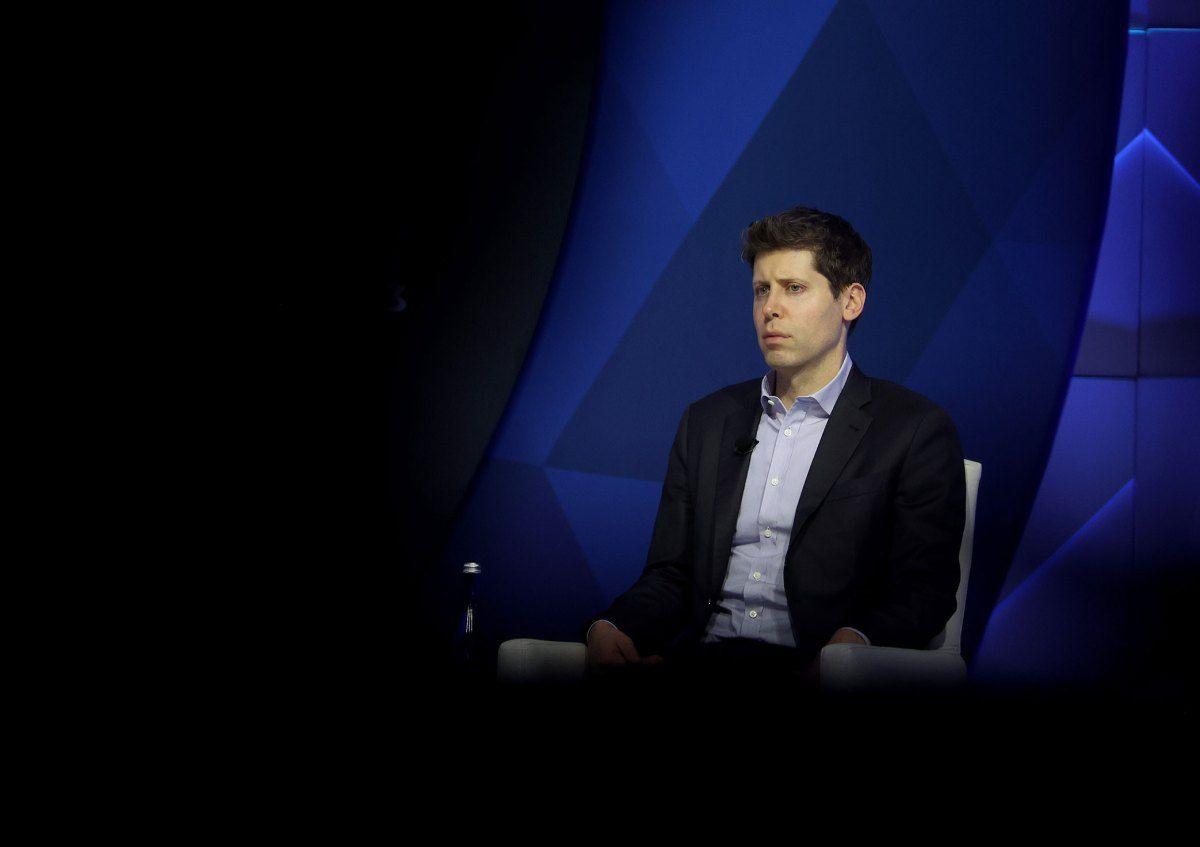OpenAI Expands Cloud Infrastructure, Adds Google as Partner Amid Growing Demand
8 Sources
8 Sources
[1]
OpenAI lists Google as cloud partner amid growing demand for computing capacity
July 16 (Reuters) - OpenAI has included Alphabet's (GOOGL.O), opens new tab Google Cloud among its suppliers to meet escalating demands for computing capacity, according to an updated list published on the ChatGPT maker's website. The artificial-intelligence giant also relies on services from Microsoft (MSFT.O), opens new tab, Oracle (ORCL.N), opens new tab, and CoreWeave. The deal with Google, finalized in May after months of discussions, was first reported by Reuters citing a source in June. The arrangement underscores how massive computing demands to train and deploy AI models are reshaping the competitive dynamics in AI, and marks OpenAI's latest move to diversify its compute sources beyond its major supporter Microsoft, including its high-profile Stargate data center project. Earlier this year, OpenAI partnered with SoftBank (9984.T), opens new tab and Oracle on the $500 billion Stargate infrastructure program and signed multi-billion-dollar agreements with CoreWeave to bolster computing capacity. The partnership with Google is the latest of several maneuvers made by OpenAI to reduce its dependency on Microsoft whose Azure cloud service had served as the ChatGPT maker's exclusive data center infrastructure provider until January. Google and OpenAI discussed an arrangement for months but were previously blocked from signing a deal due to OpenAI's lock-in with Microsoft, a source had told Reuters. Reporting by Kritika Lamba in Bengaluru; Editing by Mohammed Safi Shamsi Our Standards: The Thomson Reuters Trust Principles., opens new tab
[2]
OpenAI says it will use Google's cloud for ChatGPT
The reach for additional capacity aligns with OpenAI's desire for more computing power to meet heavy demand after initially relying exclusively on Microsoft for cloud capacity. The two companies' relations have evolved since then, with Microsoft naming OpenAI as a competitor last year. Both companies sell AI tools for developers and offer subscriptions to companies. OpenAI has added Google to a list of suppliers, specifying that ChatGPT and its application programming interface will use the Google Cloud Platform, as well as Microsoft, CoreWeave and Oracle. The announcement amounts to a win for Google, whose cloud unit is younger and smaller than Amazon's and Microsoft's. Google also has cloud business with Anthropic, which was established by former OpenAI executives. The Google infrastructure will run in the U.S., Japan, the Netherlands, Norway and the United Kingdom.
[3]
OpenAI Quietly Turns to Google to Stay Online
The most powerful artificial intelligence company in the world just admitted it needs help from one of its biggest rivals to stay afloat. OpenAI, the company behind ChatGPT, has quietly added Google Cloud as one of its official service providers, meaning Google will now help power the systems that run ChatGPT and other AI products. This development was disclosed on OpenAI’s website in a list of what are called sub-processors, or companies that handle or process user data on OpenAI’s behalf. For everyday users, it may not seem like a big deal. But behind the scenes, it is a major shift. OpenAI, which is backed by Microsoft, has often been seen as a direct competitor to Google in the race to build and monetize artificial intelligence. Both companies have invested billions into AI and compete on everything, from chatbot performance to search engine dominance. Now, OpenAI is renting server space and computing power from the same company it is trying to beat. Earlier this year, OpenAI CEO Sam Altman made a series of public posts on X (formerly Twitter) admitting that the company was struggling with infrastructure. There were not enough graphics processing unitsâ€"known as GPUsâ€"to keep up with user demand. GPUs are the specialized chips that allow AI models like ChatGPT to operate at scale. They are expensive, hard to find, and mostly controlled by a few tech giants. Altman put it bluntly in April: “We are getting things under control, but you should expect new releases from OpenAI to be delayed, stuff to break, and for service to sometimes be slow as we deal with capacity challenges.†He later added: “If anyone has GPU capacity in 100,000 chunks we can get ASAP, please call!†In the months since, OpenAI has quietly moved to stabilize its systems. And now we know how. By partnering with Google Cloud, OpenAI gains access to some of the most advanced AI hardware and data center infrastructure on Earth. Google, like Amazon and Microsoft, runs massive server farms that rent out computing power to other companies. And unlike OpenAI, it has enough chips to meet demand. If you’ve noticed ChatGPT slowing down or glitching in recent weeks, it is likely a result of the overwhelming demand on OpenAI’s servers. Millions of people now use the tool daily, and the company’s infrastructure has not scaled fast enough to handle it. With Google now onboard, OpenAI may be able to deliver faster responses, more reliable uptime, and future feature rollouts that had previously been delayed. It also gives OpenAI breathing room to focus on its core research and product development without being held back by hardware shortages. This partnership also reveals something deeper about the future of AI. Even as companies talk about independence, decentralization, and disruption, the reality is that a handful of tech giants still control the essential tools. Whether it is through chips, data centers, or cloud infrastructure, companies like Google, Microsoft, and Amazon are still the backbone of everything online, including artificial intelligence. So while OpenAI and Google may be rivals on the surface, they are now quietly working together behind the scenes. And for users, that means the future of AI may be more interconnected than anyone expected.
[4]
OpenAI to move to Google Cloud infrastructure to boost ChatGPT computing power
OpenAI has now added Google Cloud Platform as a cloud provider for ChatGPT and its APIs in a number of countries, according to CNBC reporting. This comes as the AI giant diversifies its infrastructure to meet growing demand - the company also famously uses Microsoft, as well as Oracle and CoreWeave. Once the company's exclusive cloud provider, Microsoft has lost exclusivity as the relationship between the two companies evolved. Today, Redmond still has first right of refusal, but it's no longer the sole vendor. OpenAI's use of Google Cloud Platform is a significant win for the company, whose cloud business is much smaller than AWS and Microsoft Azure even though it's the third-largest cloud provider globally. Its infrastructure will be used in the US, the UK, Japan, the Netherlands, and Norway. On the other side of the deal, OpenAI isn't Google's only AI customer. The tech giant already has a partnership with Anthropic - a rival AI company founded by former OpenAI execs. OpenAI CEO Sam Altman has previously cited a shortage of GPUs as a motivation to not only increase, but broaden the range of cloud services. According to Reuters, the deal with Google could have been on the cards for a number of months, but it wasn't until the exclusive partnerships with Microsoft ended that discussions could progress. For OpenAI, diversifying suppliers reduces single-vendor lock-in, ultimately giving the company more leverage to negotiate on pricing and to access the latest chips. However, the deal raises questions about how Google and its rivals will allocate resources, each offering their own alternative to ChatGPT. Looking ahead, OpenAI is on track to finalize accelerator designs soon, which could further reduce its reliance on third parties.
[5]
OpenAI taps Google Cloud to access much-needed GPUs for ChatGPT - SiliconANGLE
OpenAI taps Google Cloud to access much-needed GPUs for ChatGPT OpenAI is getting some much-needed cloud infrastructure love from Google Cloud, and has added the company to its official list of artificial intelligence hardware suppliers. The AI industry leader has recently admitted that it has been struggling to procure enough cloud infrastructure capacity to run its popular chatbot assistant ChatGPT and other large language models, and Google Cloud has now stepped up to assist it. The deal, first reported by Reuters, underscores how OpenAI's relationship with Microsoft Corp. has evolved lately. Previously, OpenAI relied exclusively on Microsoft's Azure cloud platform to access the essential graphics processing units needed to run its AI models, but increased competition between the two companies has encouraged it to seek additional allies. Last year, Microsoft said it sees OpenAI as a competitor, even though it remains one of the ChatGPT maker's largest financial backers, having invested billions of dollars into it in the last couple of years. That's because Microsoft sells its own AI services for consumers and tools for developers that compete directly with many of OpenAI's offerings. Meanwhile, OpenAI has been searching for additional cloud computing capacity, with its demands apparently going beyond what Microsoft can supply to it. As such, it says Google Cloud has been added to a list that includes Microsoft, Oracle Corp. and CoreWeave Inc. No doubt, Google Cloud will see the announcement as a significant win for its cloud infrastructure business, which is significantly smaller than Amazon Web Services and Microsoft Azure. It too is a competitor to OpenAI, with its Gemini AI assistant widely seen as a direct alternative to ChatGPT, yet it's also hungry to win more AI business, having previously become the key cloud supplier of Anthropic PBC. OpenAI is clearly looking to spread its bets. Last year, it revealed it's also using the Oracle Cloud Infrastructure platform to access additional GPUs. That announcement came shortly after Oracle said it was partnering with Microsoft to run the Azure AI platform on its cloud, specifically to support OpenAI. The two companies then visited the White House, where they announced they were participating in U.S. President Donal Trump's Stargate initiative, which aims to build more than $500 billion worth of AI data centers in the country in the next five years. In March, OpenAI went further and announced a $12 billion, five-year deal to access GPU resources from CoreWeave, which operates a fast-growing network of data centers that are dedicated to powering third-party AI systems. But even that deal was not enough. One month later, OpenAI Chief Executive Sam Altman said in a post on X that the company needs yet more cloud capacity: "If anyone has GPU capacity in 100k chunks we can get asap please call!", he wrote. These developments came after Microsoft revealed in January that it had reached an agreement with OpenAI that it will no longer be its exclusive cloud provider, but will still have the first option anytime its partner requires additional GPU capacity. The company still has exclusive rights to OpenAI's application programming interfaces, though, so any developers looking to integrate its models in their own apps must run them on Azure. According to OpenAI, it's planning to run some of its AI workloads on Google Cloud's infrastructure in the U.S., the U.K., the Netherlands, Norway and Japan.
[6]
OpenAI Google partnership: OpenAI taps Google Cloud to boost computing capacity - The Economic Times
OpenAI has updated its supplier roster to include Alphabet's Google Cloud to help meet its soaring demand for computing power, according to its website. A Reuters report said that the agreement with Google was finalised in May following months of negotiations. Alongside Google Cloud, OpenAI continues to rely on Microsoft, Oracle, and CoreWeave, highlighting just how immense the computing needs are for training and deploying AI models, and how new partnerships are forming to meet them; even turning rivals into partners. OpenAI and Google reportedly faced obstacles due to OpenAI's previous reliance on Microsoft's Azure, which had been its sole data centre infrastructure provider up until January. Recently, Reuters reported that CoreWeave, which offers cloud computing services built on Nvidia GPUs, is set to support Google Cloud. Google, in turn, will allocate that capacity to OpenAI to handle the growing demand for services such as ChatGPT. In addition, Google is providing some of its own computing resources to OpenAI. The move takes OpenAI a step further in its efforts to diversify away from its largest backer, Microsoft. Earlier this year, it teamed up with SoftBank and Oracle on the $500 billion "Stargate" infrastructure programme. In May, OpenAI CEO Sam Altman even offered a glimpse of "Stargate 1," the AI training site now under construction in Abilene, Texas, which he says will be the "biggest in the world."
[7]
OpenAI lists Google as cloud partner amid growing demand for computing capacity - The Economic Times
OpenAI has included Alphabet's Google Cloud among its suppliers to meet escalating demands for computing capacity, according to an updated list published on the ChatGPT maker's website. The artificial-intelligence giant also relies on services from Microsoft, Oracle, and CoreWeave. The deal with Google, finalized in May after months of discussions, was first reported by Reuters citing a source in June. The arrangement underscores how massive computing demands to train and deploy AI models are reshaping the competitive dynamics in AI, and marks OpenAI's latest move to diversify its compute sources beyond its major supporter Microsoft, including its high-profile Stargate data centre project. Earlier this year, OpenAI partnered with SoftBank and Oracle on the $500 billion Stargate infrastructure program and signed multi-billion-dollar agreements with CoreWeave to bolster computing capacity. The partnership with Google is the latest of several maneuvers made by OpenAI to reduce its dependency on Microsoft whose Azure cloud service had served as the ChatGPT maker's exclusive data centre infrastructure provider until January. Google and OpenAI discussed an arrangement for months but were previously blocked from signing a deal due to OpenAI's lock-in with Microsoft, a source had told Reuters.
[8]
OpenAI lists Google as cloud partner amid growing demand for computing capacity
(Reuters) -OpenAI has included Alphabet's Google Cloud among its suppliers to meet escalating demands for computing capacity, according to an updated list published on the ChatGPT maker's website. The artificial-intelligence giant also relies on services from Microsoft, Oracle, and CoreWeave. The deal with Google, finalized in May after months of discussions, was first reported by Reuters citing a source in June. The arrangement underscores how massive computing demands to train and deploy AI models are reshaping the competitive dynamics in AI, and marks OpenAI's latest move to diversify its compute sources beyond its major supporter Microsoft, including its high-profile Stargate data center project. Earlier this year, OpenAI partnered with SoftBank and Oracle on the $500 billion Stargate infrastructure program and signed multi-billion-dollar agreements with CoreWeave to bolster computing capacity. The partnership with Google is the latest of several maneuvers made by OpenAI to reduce its dependency on Microsoft whose Azure cloud service had served as the ChatGPT maker's exclusive data center infrastructure provider until January. Google and OpenAI discussed an arrangement for months but were previously blocked from signing a deal due to OpenAI's lock-in with Microsoft, a source had told Reuters. (Reporting by Kritika Lamba in Bengaluru; Editing by Mohammed Safi Shamsi)
Share
Share
Copy Link
OpenAI, the creator of ChatGPT, has added Google Cloud to its list of cloud infrastructure providers, joining Microsoft, Oracle, and CoreWeave. This move aims to meet the increasing demand for computing capacity and diversify OpenAI's infrastructure sources.
OpenAI Expands Cloud Infrastructure Portfolio
OpenAI, the company behind the popular AI chatbot ChatGPT, has made a significant move in its cloud infrastructure strategy by adding Google Cloud to its list of service providers
1
2
. This decision comes as OpenAI seeks to meet the escalating demands for computing capacity and diversify its infrastructure sources beyond its major supporter, Microsoft1
.
Source: SiliconANGLE
Strategic Partnerships and Infrastructure Expansion
The partnership with Google Cloud is part of a broader strategy by OpenAI to bolster its computing capabilities. In addition to Google, the company relies on services from Microsoft, Oracle, and CoreWeave
1
. Earlier this year, OpenAI partnered with SoftBank and Oracle on the $500 billion Stargate infrastructure program and signed multi-billion-dollar agreements with CoreWeave1
.This diversification reduces OpenAI's dependency on Microsoft, whose Azure cloud service had previously served as the exclusive data center infrastructure provider for OpenAI until January
1
. The deal with Google, finalized in May after months of discussions, marks a significant shift in the competitive dynamics of the AI industry1
3
.
Source: ET
Addressing GPU Shortages and Service Challenges
OpenAI CEO Sam Altman has been vocal about the company's struggles with infrastructure and GPU shortages. In April, Altman stated, "We are getting things under control, but you should expect new releases from OpenAI to be delayed, stuff to break, and for service to sometimes be slow as we deal with capacity challenges"
3
. The partnership with Google Cloud aims to address these issues by providing access to advanced AI hardware and data center infrastructure3
.Impact on Service and Future Development
With Google now onboard, OpenAI may be able to deliver faster responses, more reliable uptime, and roll out future features that had previously been delayed due to hardware limitations
3
. This additional capacity aligns with OpenAI's desire for more computing power to meet the heavy demand for its services2
.
Source: CNBC
Related Stories
Competitive Landscape and Industry Implications
The deal highlights the complex relationships within the AI industry. While OpenAI and Google may be rivals in AI development, they are now collaborating on infrastructure
3
. Similarly, Microsoft, which remains one of OpenAI's largest financial backers, now sees the company as a competitor in certain areas5
.For Google Cloud, this partnership represents a significant win, as its cloud business is smaller than those of Amazon and Microsoft
2
5
. Google's infrastructure will run OpenAI's services in the U.S., Japan, the Netherlands, Norway, and the United Kingdom2
5
.Future Outlook
As OpenAI continues to grow and develop new AI technologies, the demand for computing resources is likely to increase further. The company is reportedly working on finalizing accelerator designs, which could potentially reduce its reliance on third-party infrastructure providers in the future
4
.This move by OpenAI underscores the critical role that cloud infrastructure plays in the development and deployment of advanced AI systems. As the AI race intensifies, the ability to secure and efficiently utilize vast computing resources may become a key differentiator among leading AI companies.
References
Summarized by
Navi
Related Stories
Recent Highlights
1
ByteDance's Seedance 2.0 AI video generator triggers copyright infringement battle with Hollywood
Policy and Regulation

2
Demis Hassabis predicts AGI in 5-8 years, sees new golden era transforming medicine and science
Technology

3
Nvidia and Meta forge massive chip deal as computing power demands reshape AI infrastructure
Technology








